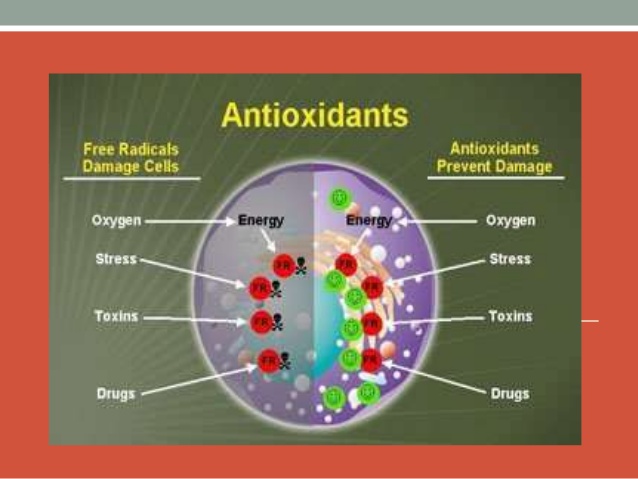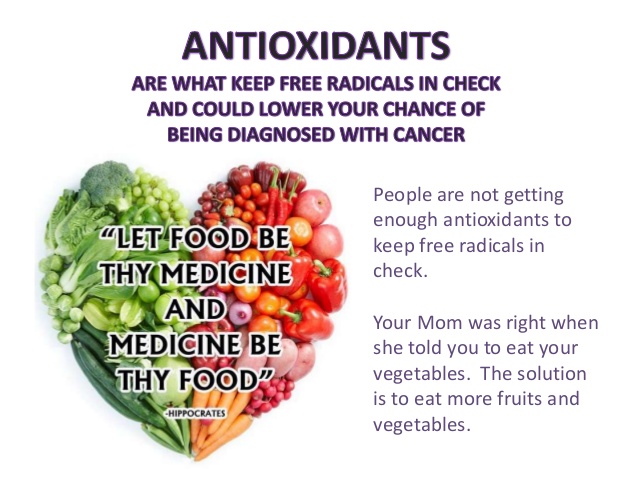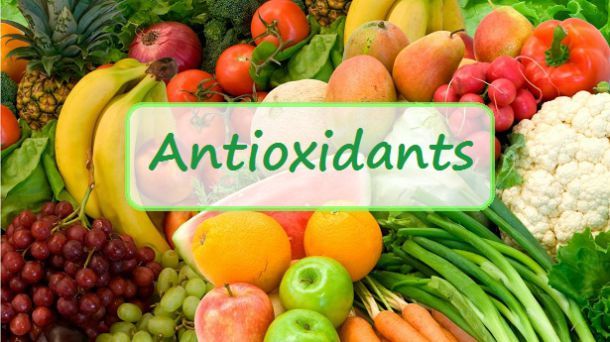What are antioxidants?
“Antioxidants” is one of those buzzwords that gets thrown around a lot, even though most people don’t fully understand what it means. We know that foods full of antioxidants are really good for us, and we should buy skincare with antioxidants to keep our skin healthy and ward off signs of aging. We need antioxidants, we should always say “yes” to antioxidants. But, why? What are these mythical compounds, and why’s everyone always making such a big deal out of them?
“Antioxidants are compounds found in food that stop or delay damage to the cells,” Lauri Wright, Ph.D., R.D., L.D., says assistant professor of nutrition at the University of South Florida. They are naturally found in many foods, especially plants. They help ward off cell damage by “cleaning up” or removing waste products in our cells, called free radicals, before they can do harm. “Antioxidants are released from the foods we eat through digestion and travel through the bloodstream and into cells,” where they do work on free radicals, Wright explains.
Antioxidants are substances that may protect cells from the damage caused by unstable molecules known as free radicals. Free radical damage may lead to cancer. Antioxidants interact with and stabilize free radicals and may prevent some of the damage free radicals otherwise might cause. Examples of antioxidants include beta-carotene, lycopene, vitamins C, E, and A, and other substances.

Can antioxidants prevent cancer?
Considerable laboratory evidence from chemical, cell culture, and animal studies indicates that antioxidants may slow or possibly prevent the development of cancer. However, information from recent clinical trials is less clear. In recent years, large-scale, randomized clinical trials reached inconsistent conclusions.
What was shown in previously published large-scale clinical trials?
Five large-scale clinical trials published in the 1990s reached differing conclusions about the effect of antioxidants on cancer. The studies examined the effect of beta-carotene and other antioxidants on cancer in different patient groups. However, beta-carotene appeared to have different effects depending upon the patient population. The conclusions of each study are summarized below.
- The first large randomized trial on antioxidants and cancer risk was the Chinese Cancer Prevention Study, published in 1993. This trial investigated the effect of a combination of beta-carotene, vitamin E, and selenium on cancer in healthy Chinese men and women at high risk for gastric cancer. The study showed a combination of beta-carotene, vitamin E, and selenium significantly reduced incidence of both gastric cancer and cancer overall.
- A 1994 cancer prevention study entitled the Alpha-Tocopherol (vitamain E)/Beta-Carotene Cancer Prevention Study (ATBC) demonstrated that lung cancer rates of Finnish male smokers increased significantly with beta-carotene and were not affected by vitamin E.
- Another 1994 study, the Beta-Carotene and Retinol (vitamin A) Efficacy Trial (CARET), also demonstrated a possible increase in lung cancer associated with antioxidants.
- The 1996 Physicians' Health Study I (PHS) found no change in cancer rates associated with beta-carotene and aspirin taken by U.S. male physicians.
- The 1999 Women's Health Study (WHS) tested effects of vitamin E and beta-carotene in the prevention of cancer and cardiovascular disease among women age 45 years or older. Among apparently healthy women, there was no benefit or harm from beta-carotene supplementation. Investigation of the effect of vitamin E is ongoing.

Are antioxidants under investigation in current large-scale clinical trials?
Three large-scale clinical trials continue to investigate the effect of antioxidants on cancer. The objective of each of these studies is described below. More information about clinical trails can be obtained using cancer.gov/clinicaltrials, www.clinicaltrials.gov, or the CRISP database at www.nih.gov.
- The Women's Health Study (WHS) is currently evaluating the effect of vitamin E in the primary prevention of cancer among U.S. female health professionals age 45 and older. The WHS is expected to conclude in August 2004.
- The Selenium and Vitamin E Cancer Prevention Trial (SELECT) is taking place in the United States, Puerto Rico, and Canada. SELECT is trying to find out if taking selenium and/or vitamin E supplements can prevent prostate cancer in men age 50 or older. The SELECT trial is expected to stop recruiting patients in May 2006.
- The Physicians' Health Study II (PHS II) is a follow up to the earlier clinical trial by the same name. The study is investigating the effects of vitamin E, C, and multivitamins on prostate cancer and total cancer incidence. The PHS II is expected to conclude in August 2007.
How might antioxidants prevent cancer?
Antioxidants neutralize free radicals as the natural by-product of normal cell processes. Free radicals are molecules with incomplete electron shells which make them more chemically reactive than those with complete electron shells. Exposure to various environmental factors, including tobacco smoke and radiation, can also lead to free radical formation. In humans, the most common form of free radicals is oxygen. When an oxygen molecule (O2) becomes electrically charged or "radicalized" it tries to steal electrons from other molecules, causing damage to the DNA and other molecules. Over time, such damage may become irreversible and lead to disease including cancer. Antioxidants are often described as "mopping up" free radicals, meaning they neutralize the electrical charge and prevent the free radical from taking electrons from other molecules.
Which foods are rich in antioxidants?
Antioxidants are abundant in fruits and vegetables, as well as in other foods including nuts, grains and some meats, poultry and fish. The list below describes food sources of common antioxidants.
- Beta-carotene is found in many foods that are orange in color, including sweet potatoes, carrots, cantaloupe, squash, apricots, pumpkin, and mangos. Some green leafy vegetables including collard greens, spinach, and kale are also rich in beta-carotene.
- Lutein, best known for its association with healthy eyes, is abundant in green, leafy vegetables such as collard greens, spinach, and kale.
- Lycopene is a potent antioxidant found in tomatoes, watermelon, guava, papaya, apricots, pink grapefruit, blood oranges, and other foods. Estimates suggest 85 percent of American dietary intake of lycopene comes from tomatoes and tomato products.
- Selenium is a mineral, not an antioxidant nutrient. However, it is a component of antioxidant enzymes. Plant foods like rice and wheat are the major dietary sources of selenium in most countries. The amount of selenium in soil, which varies by region, determines the amount of selenium in the foods grown in that soil. Animals that eat grains or plants grown in selenium-rich soil have higher levels of selenium in their muscle. In the United States, meats and bread are common sources of dietary selenium. Brazil nuts also contain large quantities of selenium.
- Vitamin A is found in three main forms: retinol (Vitamin A1), 3,4-didehydroretinol (Vitamin A2), and 3-hydroxy-retinol (Vitamin A3). Foods rich in vitamin A include liver, sweet potatoes, carrots, milk, egg yolks and mozzarella cheese.
- Vitamin C is also called ascorbic acid, and can be found in high abundance in many fruits and vegetables and is also found in cereals, beef, poultry and fish.
- Vitamin E, also known as alpha-tocopherol, is found in almonds, in many oils including wheat germ, safflower, corn and soybean oils, and also found in mangos, nuts, broccoli and other foods.
